Image of The Day
Browse NASA Image Archive
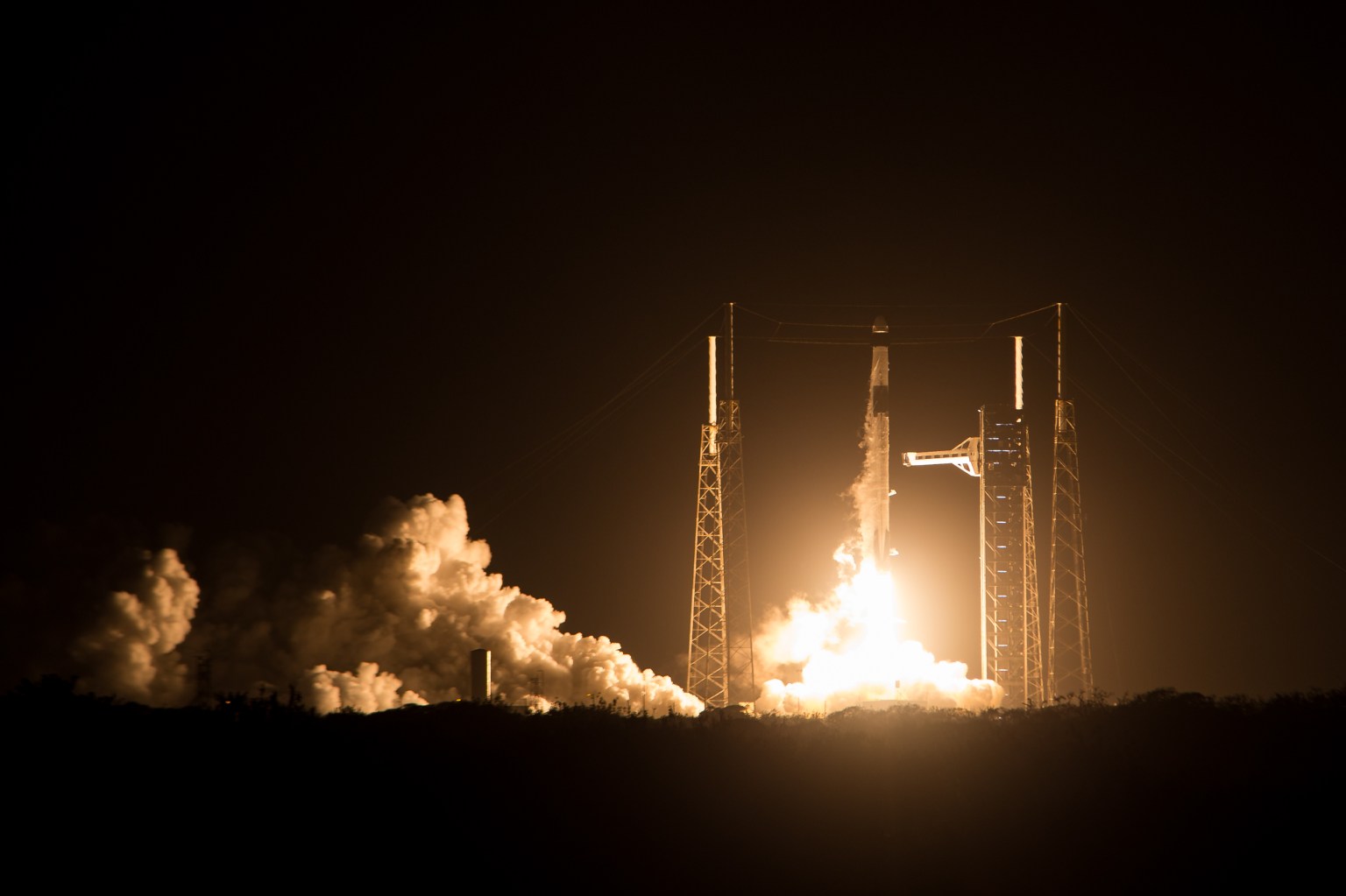
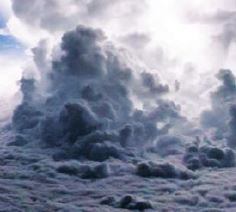
Article about the latest ASIM results that appearred ih the Science section of The Statesman newspaper, an English-language daily printed in Kolkata, New Delhi, Siliguri and Bhubaneshwar. This article appearred in the newspaper on Wednesday 29th January 2020.
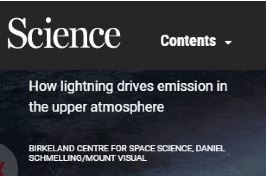
The first major results from the Danish-led ASIM mission, which investigates lightning in space, were recently on the front page of Science. This concludes a cycle of knowledge for DTU Space

De første store resultater fra den dansk-ledede ASIM-mission, som undersøger lyn i rummet, var for nylig på forsiden af Science. Dermed sluttes en cyklus for DTU Space, der står bag projektet.

Det er sjældent, at dansk forskning rydder forsiden hos et af verdens mest anerkendte videnskabelige tidsskrifter, Science. Men det skete for nylig - ganske velfortjent. Danmarks hidtil dyreste rumprojekt, ASIM fra DTU Space, kunne for første gang fortælle detaljeret, hvad der foregår, når tordenguden Thor kører sin stridsvogn hen over himlen med Mjølner højt hævet. Forskerne gav et unikt kig ind i nogle af klodens voldsomste energiudladninger, nemlig de såkaldte jordiske gammaglimt, som opstår i særlige former for lyn.
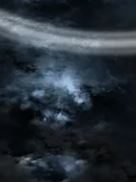
Birkeland Centre for Space Science in Bergen has released an animation of a TGF seen in conjuction with an ELVE in the Earth's ionosphere. The animation, produced by Mount Visual in Norway, shows the events that produce lightning, TGFs and ELVES, based on data from ASIM. The BCSS in Bergen is an important partner in the ASIM/ASDC collaboration, and their researchers are co-authors on the Science paper that describes the data and theory behind the processes shown in the animation. TGFs and ELVES were only detected for the first time in the 1990's, because they are of very short duration. The human eye can barely see these events, and even a person with a high-speed camera would have to be very lucky to snap a picture at just the right time. The events shown in this 40 second animation actually take only a couple of milliseconds to occur. ASIM is the first mission designed solely to detect these events.
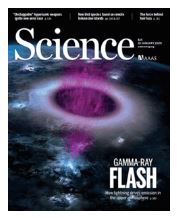
One of the first scientific articles based on ASIM data has been published by the reowned journal Science. The results are so ground-breaking that the story has been put on the front page, along with a fabulous image, commissioned by the Birkeland Centre for Space Science in Bergen, who contributed to the data processing and scientific interpretation.

Den danske forskning har ryddet forsiden af det anerkendte amerikanske forskningstidsskrift Science. I de seneste 25 år har forskere forsøgt at løse gåden om, hvorfor mystiske udbrud af gammastråling kan opstå oven over tordenskyer. Ny dansk forskning kaster lys over fænomenet.
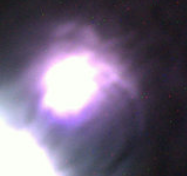
The space-borne storm-hunter on Europe’s Columbus laboratory is continuously monitoring thunderstorms as it flies 400 km overhead on the International Space Station. Pilots reported seeing shows of light in the upper atmosphere and scientists coined names such as red sprites, blue jets and elves. Now the Atmosphere–Space Interactions Monitor, or ASIM, is revealing details on the elusive events that occur when lightning strikes Earth and extends upward into space.
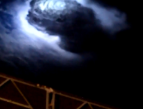
Dark fluffy thunderclouds don't just fuel dramatic storms, they also produce some of the most energetic flashes of light on the planet — and brilliant sky displays known as ultrasonic "elves." Now, new findings have painted a clearer picture of what's going on in the silent interludes of a stormy sky.